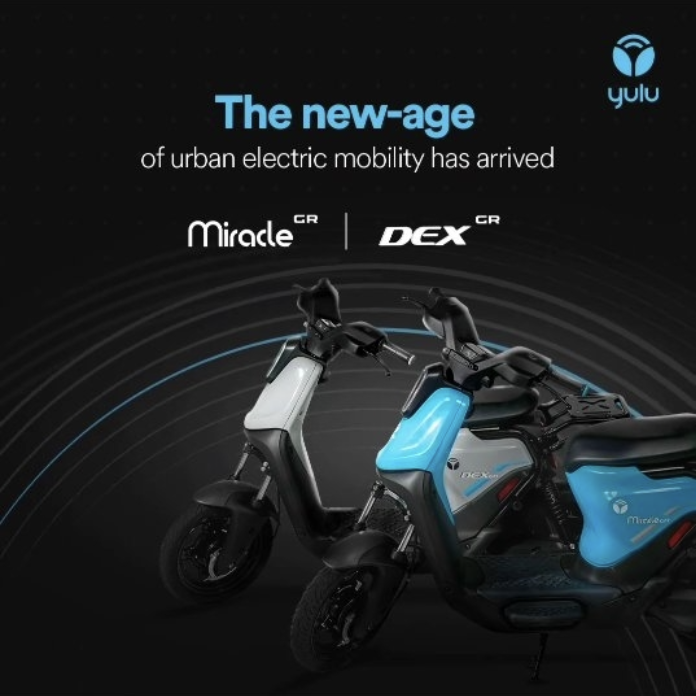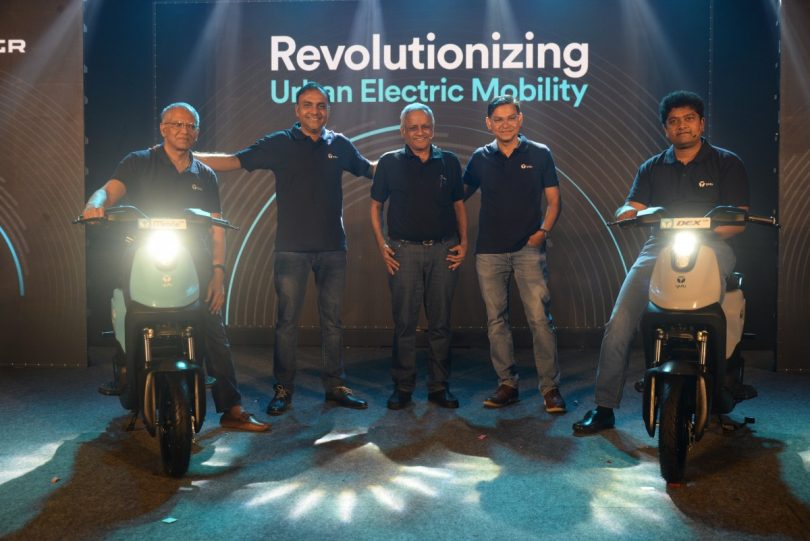Yulu and Bajaj Auto have announced their partnership. The key main aim of this is to create a revolutionary electric 2-wheeler platform for sustainable urban mobility. This unique global collaboration between the two companies will have high hopes of transforming mobility. The long-term target is to offer affordable access, best-in-class ride, and green commuting to customers.
The Yulu-Bajaj partnership’s main area of focus is on providing sustainable last-mile mobility and deliveries in urban areas. With Yulu’s shared mobility leadership, this partnership does look a lot more promising. In addition to that, Bajaj Auto’s leading R&D and manufacturing capabilities will further contribute to this shared goal.
Yulu Miracle GR and DeX GR Is An Outcome Of This Partnership
Both companies have jointly created Yulu’s 3rd gen e-scooter – Miracle GR and DeX GR. The company claims that these purpose-built electric 2-wheelers are energy efficient, robust, and durable. They are designed keeping in mind the Indian road conditions and climate. Yulu has a big target of putting 1,00,000 e-scooters on the road. This will result in ten-fold growth in revenues by year-end.
It goes without saying, the potential of this platform is enormous. But, the success of these purpose-built vehicles relies on multiple parameters. We believe. Yulu’s energy infrastructure and Bajaj Auto’s forward-looking strategy, which prioritises EVs, will act as the main contributors towards the success of the plan.
Given the rapidly changing mobility needs and disruption in traditional ownership, the current models call for sustainable and innovative solutions. And this partnership has the potential for market leadership in the shared mobility space.
Swappable Battery Is A Convenient Mode Of Charging
Yulu is using the swappable batteries tech to power its fleet of electric vehicles. With this, users can easily exchange them at any of the 100 Yulu stations located in Bengaluru, Mumbai, and Delhi. This makes the charging process more convenient, efficient, and less time-consuming. With this, riders can quickly swap out depleted batteries for fully charged ones. They will not have to wait for the vehicles to charge. There are big plans to expand the network to 500 by 2024, further improving the accessibility and usability of its electric micro-mobility services.
Also Read: Bajaj electric autorickshaw coming soon, max speed 33.2 kmph.



